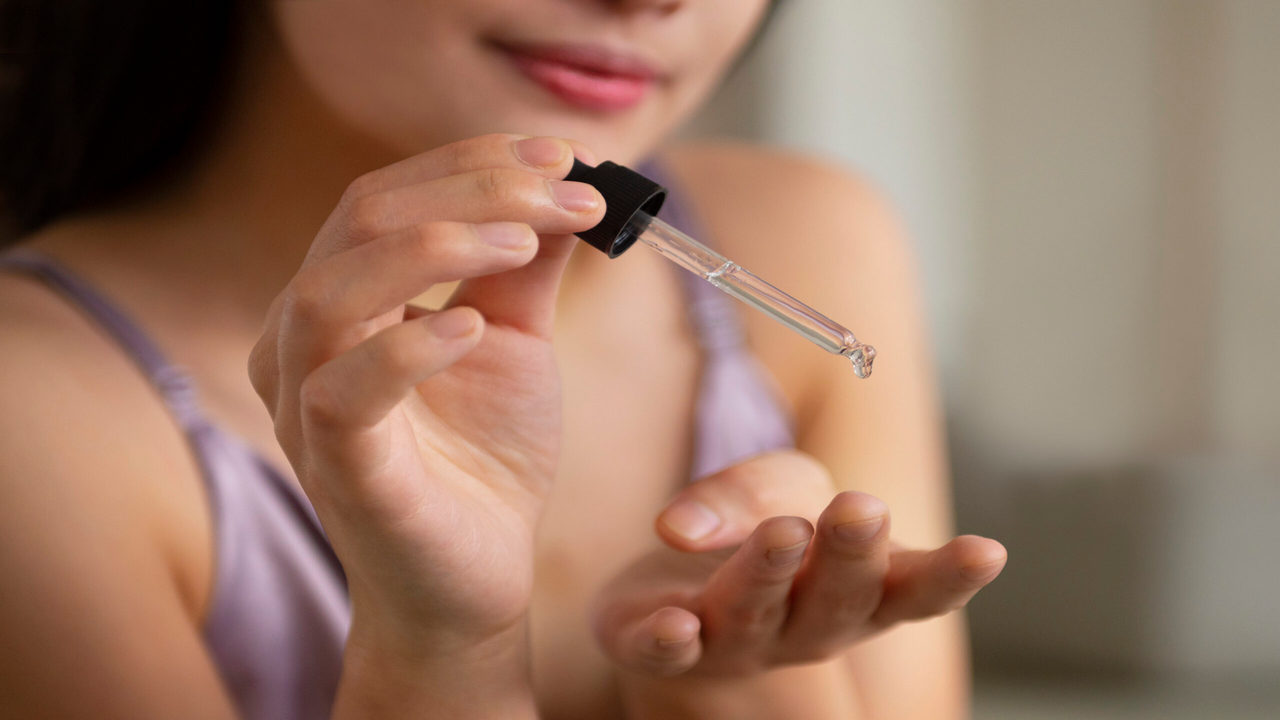Ever feel like you are knee-deep in skincare buzzwords: retinol, hyaluronic acid, and niacinamide? Here is one more to add to your list–peptides. These short protein chains may sound technical and smack of science, but they are amongst the most exciting skin care ingredients around. What, then, are they? So why is your skin craving them? What, then, is the best way of utilizing them? So, well, shall we go in and check.

What Are Peptides?
The Science Behind Peptides
In simple terms, they are short chains of amino acids which form the basis of proteins like collagen and elastin.These proteins are what provide you with a firm, plump, and youthful skin.
How Peptides Work in Skincare
When applied to the skin, they act like the messengers to instruct the skin to increase collagen production, enhance thickening of its barrier, and trigger the restorative process.Think of them as small cheer squads urging the skin to be the best version of itself.
Why Your Skin Needs Peptides
Collagen and Elastin Support
And as we get older, our natural collagen production declines- by one percent annually after age 20! These encourage the production of collagen to diminish any signs of deformities like fine lines, sagging and wrinkles.
Barrier Function and Hydration
Some are known to enhance your skin barrier that can be vital in retaining moisture and block aggressors in the environment. If your skin is dry, dull, or sensitive, they may be exactly what it requires to hit the re-set button
Anti-Aging Benefits
Their formulae are all-purpose- they soften, moisturize, and defend. The more one adheres to it on a regular basis, the firmer and younger looking the skin feels and appears.
Key Characteristics of Peptides in Skincare
Types of Peptides
In skin care, there are different kinds of peptides that are employed with each having unique functions:
Signal
Instruct your skin to make more collagen and elastin.
Carrier
Give the minerals necessary to heal and repair.
Enzyme-Inhibitor
Inhibit the collagenase enzymes that degrade collagen.
Neurotransmitter-Inhibitor
Relax the muscles of the face to lessen expression lines (frequently referred to as Botox-like peptides).
Stability and Delivery Systems
They are fragile and therefore their efficacy is based on their formulation stability and sophisticated delivery such as liposomes that enhance deeper penetration into skin.
Compatibility With Other Ingredients
They get along with a majority of skincare ingredients–niacinamide, hyaluronic acid, and ceramides will be best friends. The only thing to remember is that you should not combine them with very acidic or very low pH products because they can break them down.
How to Use Them in Your Routine
Best Time to Apply
Use these serums morning and night, morning after you apply sunscreen and at night right before moisturizer.
What Products Contain Peptides
You’ll find these in:
- Serums (most concentrated)
- Moisturizers
- Eye creams
- Masks
How to Layer with Other Actives
Used in place of toner after a cleansing, in place of a heavier cream. When applying retinol or exfoliating acids, alternate nights, or use this during the morning.
Recommended Products for Different Skin Types
Dry Skin
- The Ordinary Buffet + Copper Peptides
- Drunk Elephant Protini Polypeptide Cream
Oily/Acne-Prone Skin
- The Inkey List Peptide Moisturizer
- Paula’s Choice Peptide Booster
Mature/Aging Skin
- Olay Regenerist Micro-Sculpting Cream
- Algenist Genius Liquid Collagen
Sensitive Skin
- La Roche-Posay Toleriane Ultra Night
- Avène DermAbsolu Recontouring Serum
Are Peptides Safe?
Side Effects and Patch Testing
These are non-irritating and are safe to use everyday. Nevertheless, test any new product by patch test in case you are allergic to other components in the mixture.
Myths and Misunderstandings
No, they are not hormones and they will not mess with your system. Nor are they a magic instant fix, but with consistency they work great.
Expert Opinions and Dermatologist Insights
What the Research Says
Studies have shown that it can make a big impact on skin firmness, hydration, and elasticity when applied consistently during an 8-12 week timeframe.
Pro Tips for Maximum Benefit
Derms suggest to combine them with broad-spectrum SPFand a good nighttime moisturizerto achieve the best effect.
Choosing the Right Peptide Serum or Cream
Ingredients to Look For
- Matrixyl 3000
- Argireline
- Copper peptides
- Palmitoyl pentapeptide
Packaging and Product Formulation
Choose air-tight, opaque packaging to protect peptides against degradation.Serums in a watery or gel-based base absorb better.
Peptides vs Retinol – Which One to Choose?
Differences and Similarities
- Retinol:Faster results, but may cause irritation.
- Peptides: Gentler and build results over time
Can You Use Them Together?
Absolutely! Apply retinol at night and these in the morning, or alternate days, in case you have sensitive skin.
Budget-Friendly vs High-End Peptide Products
Do You Always Get What You Pay For?
Not necessarily. Certain over-the-counter products are as effective as expensive creams, the key is the concentration and delivery system.
Best Drugstore Picks
- The Ordinary “Buffet”
- Olay Regenerist
- Neutrogena Rapid Firming Peptide Cream
Final Thoughts
They might not receive as much buzz as retinol or vitamin C, though they are modest superheroes in the beauty industry in their own right. They are protective, restoring, hydrating, and smoothing, but they are not irritating. They should be on your shelf, in case you are seeking a long-term approach to having healthy and youthful skin. Looking at it, the right product, the same product and your skin will love you.
FAQs
Mayank Rawat
Certified Skincare Consultant and passionate researcher, I specialize in exploring skincare ingredients and haircare actives. Always eager to stay ahead of trends, I continuously update my knowledge to bring science-backed solutions. Dedicated to helping others achieve healthy skin and hair through expertise and innovation.